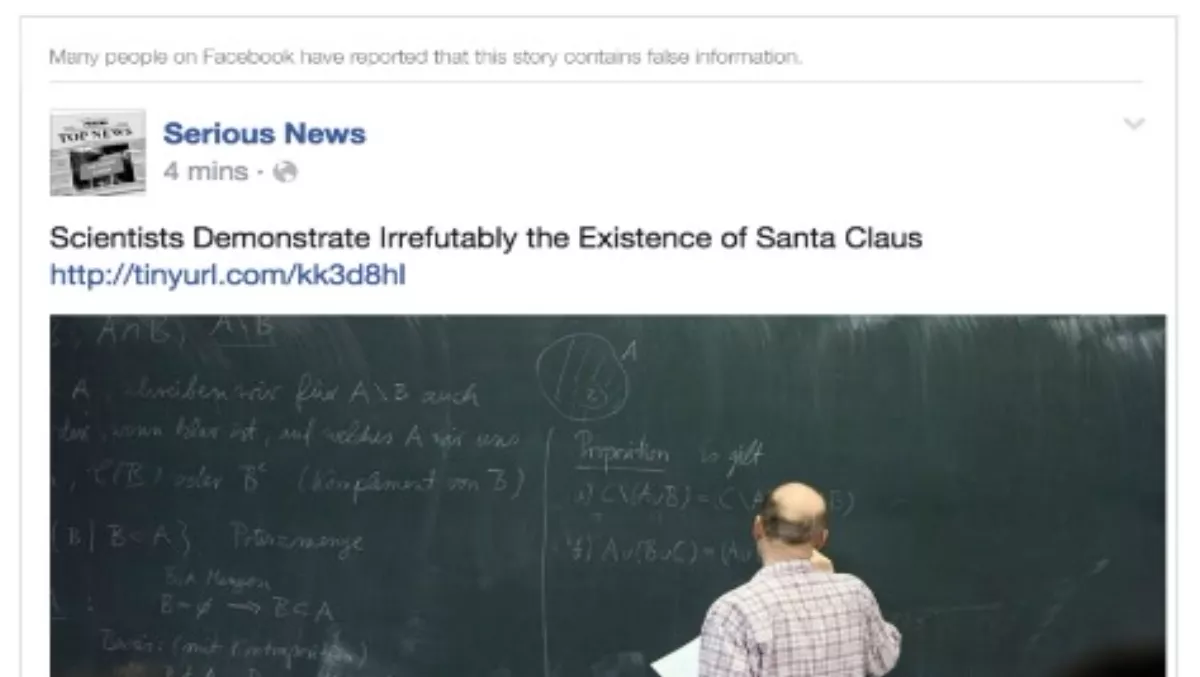
Facebook offers half-ass attempt at reducing hoaxes on News Feeds
Facebook has announced they are attempting to show fewer stories that are hoaxes in users' News Feeds.
In a blog post, the social network says it is looking to users to help Facebook improve the News Feed experience.
"We've heard from people that they want to see fewer stories that are hoaxes, or misleading news," says Erich Owens, software engineer and Udi Weinsberg, research scientist, in the post.
The update to News Feed reduces the distribution of posts that people have reported as hoaxes and adds an annotation to posts that have received many of these types of reports to warn others on Facebook.
However, Facebook says "we are not removing stories people report as false and we are not reviewing content and making a determination on its accuracy.
Hoaxes are a form of News Feed spam that includes scams ("Click here to win a lifetime supply of coffee"), or deliberately false or misleading news stories ("Man sees dinosaur on hike in Utah").
"People often share these hoaxes and later decide to delete their original posts after they realise they have been tricked," Owens says.
These types of posts also tend to receive lots of comments from friends letting people know this is a hoax, and comments containing links to hoax-busting websites.
"In fact, our testing found people are two times more likely to delete these types of posts after receiving such a comment from a friend.
Facebook recently added an option for people to report a story they see in News Feed as false. This works in the same way as reporting a story as spam.
When a user clicks to hide a story they also have the option to report the content. Stories that include scams, or deliberately misleading news, are reported two and a half times more often than links to other news stories.
To reduce the number of these types of posts, Facebook says News Feed will take into account when many people flag a post as false. News Feed will also take into account when many people choose to delete posts.
This means a post with a link to an article that many people have reported as a hoax or chosen to delete will get reduced distribution in News Feed. The update will apply to posts including links, photos, videos and status updates.
Posts that receive lots of reports will be annotated with a message warning people that many others on Facebook have reported it.
"We've found from testing that people tend not to report satirical content intended to be humorous, or content that is clearly labelled as satire. This type of content should not be affected by this update," the post says.
Facebook says the vast majority of publishers on Facebook will not be impacted by this update. A small set of publishers who are frequently posting hoaxes and scams will see their distribution decrease.


